- News
- Reviews
- Bikes
- Components
- Bar tape & grips
- Bottom brackets
- Brake & gear cables
- Brake & STI levers
- Brake pads & spares
- Brakes
- Cassettes & freewheels
- Chains
- Chainsets & chainrings
- Derailleurs - front
- Derailleurs - rear
- Forks
- Gear levers & shifters
- Groupsets
- Handlebars & extensions
- Headsets
- Hubs
- Inner tubes
- Pedals
- Quick releases & skewers
- Saddles
- Seatposts
- Stems
- Wheels
- Tyres
- Tubeless valves
- Accessories
- Accessories - misc
- Computer mounts
- Bags
- Bar ends
- Bike bags & cases
- Bottle cages
- Bottles
- Cameras
- Car racks
- Child seats
- Computers
- Glasses
- GPS units
- Helmets
- Lights - front
- Lights - rear
- Lights - sets
- Locks
- Mirrors
- Mudguards
- Racks
- Pumps & CO2 inflators
- Puncture kits
- Reflectives
- Smart watches
- Stands and racks
- Trailers
- Clothing
- Health, fitness and nutrition
- Tools and workshop
- Miscellaneous
- Buyers Guides
- Features
- Forum
- Recommends
- Podcast
TECH NEWS
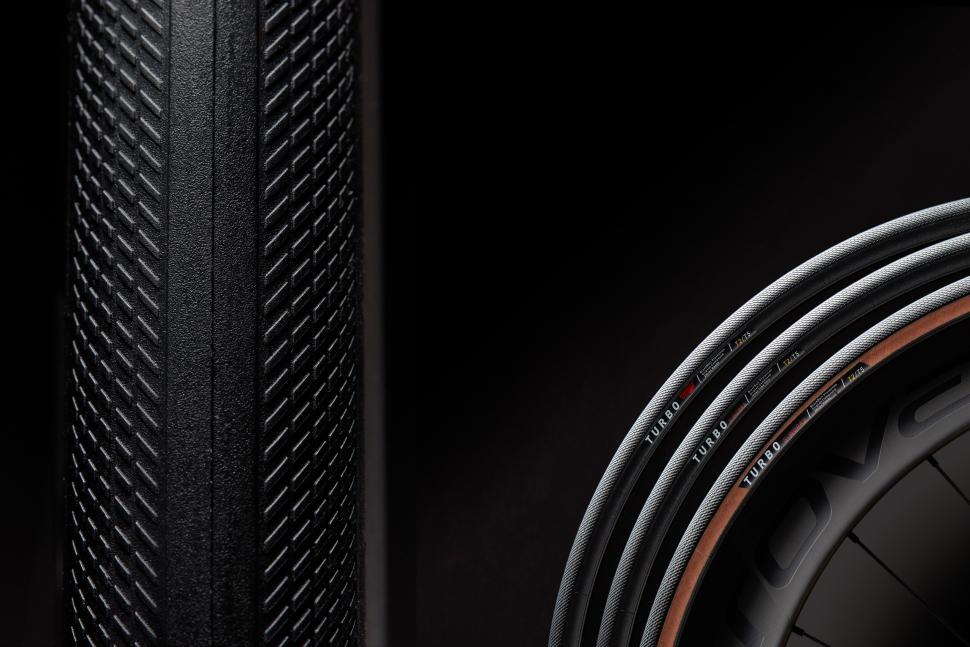 2023 Specialized Turbo tyre hero
2023 Specialized Turbo tyre heroSpecialized revamps S-Works Turbo tyre range with tubeless and clincher options
The latest family of S-Works Turbo tyres have been revealed with a host of watt, weight and puncture-saving claims. The four new tyres feature race day and everyday tubeless and tube-type clincher tyres to suit a range of budgets.
Did you know that the first product Specialized made in 1976 was a tyre? Now you do! These four latest tyres feature a brand new rubber compound, dubbed 'Gripton 2'.
The range is made up of the S-Works RapidAir 2BR lightweight racing tyre, the S-Works Turbo 2BR with extra durability, the S-Works Turbo tube-type clincher and the cheapest of the bunch, the Turbo Pro. Specialized (of course) claims they are the best road bike tyres for performance it has made yet...
S-Works Turbo RapidAir 2BR (£65)
Available in just one 26mm size and with a weight of just 230g, this is a lightweight tubeless-ready tyre that has already been proven in the biggest races in the world. Specialized says that this is its "ultimate race-day tyre", saving two watts compared to the previous generation; although doesn't specify at what speed.
> Remco Evenepoel's 2022 Vuelta winning bike
> Review: Specialized S-Works Turbo RapidAir
The new RapidAir builds on the foundations of the 2019 version with a two-ply construction, 12% more puncture protection and a new dual-compound tread which is also present in the other new tyres. Specialized says this has helped improve the durability of the RapidAir with a claimed average lifespan of 4,000km front and 3,000km rear (up ~1,000km on the previous generation).
S-Works Turbo 2BR (£55)
The more durable non-RapidAir version shares the same 120TPI casing and dual T2/T5 compound. The idea is that the T2 in the centre of the tyre is as fast as possible and hard-wearing, while the T5 compound on the shoulder of the tyre is grippier.
> Video: Learn the easy way to change a tubeless tyre
The Turbo TBR (Tubeless Ready) comes with some big claims: six watts faster than the previous 2BR (In size 26mm) and 8% more puncture protection. Specialized says that "you’ll see the S-Works Turbo2BR performing everywhere, from the World Tour to local training rides"
> Are we witnessing the death of the tubular tyre? Why tubeless now rules
This version is available in 26mm (260g), 28mm (280g) and 30mm (300g) widths for 700c tyres with the larger two sizes also offered with tan walls. Specialized claims that riders can expect the tyre to last an average of 6,000km on the front and 5,000km on the rear.
S-Works Turbo (£45)
Specialized is still keen to offer consumers the choice of non-tubeless ready tyres in the form of this S-Works Turbo. It's very similar to the 2BR version, again with the T2/T5 compounds, Blackbelt Kevlar puncture protection and 120TPI casing. It's also the lightest tyre in the new range with weights starting from 200g per tyre (24mm).
The clincher will be offered in sizes 24mm, 26mm, 28mm and 30mm, but there isn't any mention of tan walls.
Turbo Pro T5 (£35)
Tech details regarding the cheapest Turbo tyre in the range are a little scarce. What we do know is that it uses a single compound instead of two for both the centre and shoulder.
With this being the T5 compound we can expect this tyre to prioritise grip at the expense of some speed. It will be available in the same sizes as the more expensive S-works Turbo (24mm to 30mm).
Specialized has provided the above chart to help navigate the age-old question of tyre pressures. Turns out I need to go and pump mine up a bit more...
Which of the new tyres do you think best suits your riding? We've got some in for review so stay tuned for our full verdict. In the meantime, let us know your thoughts in the comments section below...
Jamie has been riding bikes since a tender age but really caught the bug for racing and reviewing whilst studying towards a master's in Mechanical engineering at Swansea University. Having graduated, he decided he really quite liked working with bikes and is now a full-time addition to the road.cc team. When not writing about tech news or working on the Youtube channel, you can still find him racing local crits trying to cling on to his cat 2 licence...and missing every break going...
Latest Comments
- HLaB 6 min 42 sec ago
That's more than double my car mileage but I'm kinda in the same boat, but I don't feel jealous of folk I'd rather have the freedom to spend my...
- quiff 16 min 33 sec ago
The intent is interesting - you might argue that the intent is deterrent and you never intend anyone to actually come into contact with the gas - a...
- Secret_squirrel 17 min 18 sec ago
Goalpost 1...
- howyaBen 33 min 59 sec ago
I like the measure of effectiveness of the new Hutch tires, % of wattage improvement. Instead of saying, "28.6 watts at 49.34 km per mile a nano...
- David9694 34 min 17 sec ago
Random driver account: "cyclists should be made to wear hi viz like workers do on a building site"....
- dubwise 45 min 1 sec ago
Nice to see Police Scotland clamping down on road traffic offenders https://archive.is/BUiil Oh wait, they just go after the vulnerable road users.
- quiff 46 min 37 sec ago
"The algorithm" served me an older JV video last week which I now can't get out of my head....
- OnYerBike 1 hour 50 min ago
Is that normal for that spot? Pretty sure sand (and/or other sand-like substances) is commonly used to soak up spilled diesel, so if a load of sand...
- quiff 3 hours 4 min ago
Holy thread resurrection Batman!
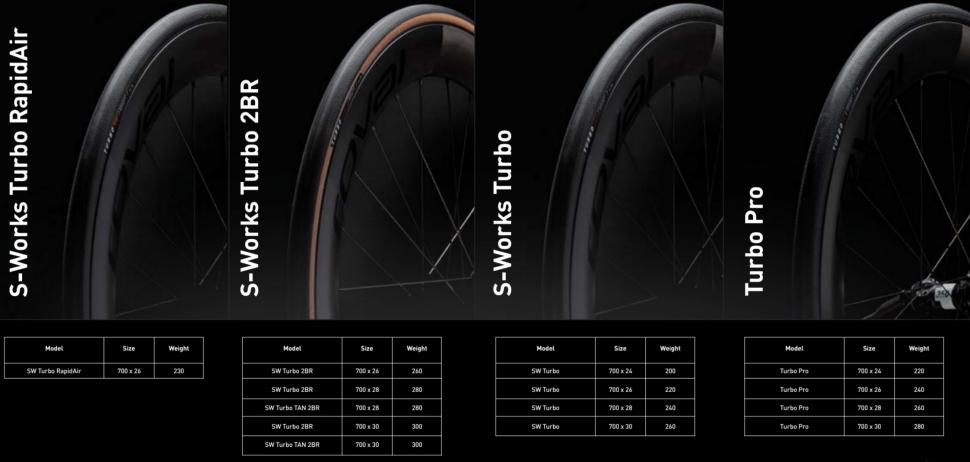
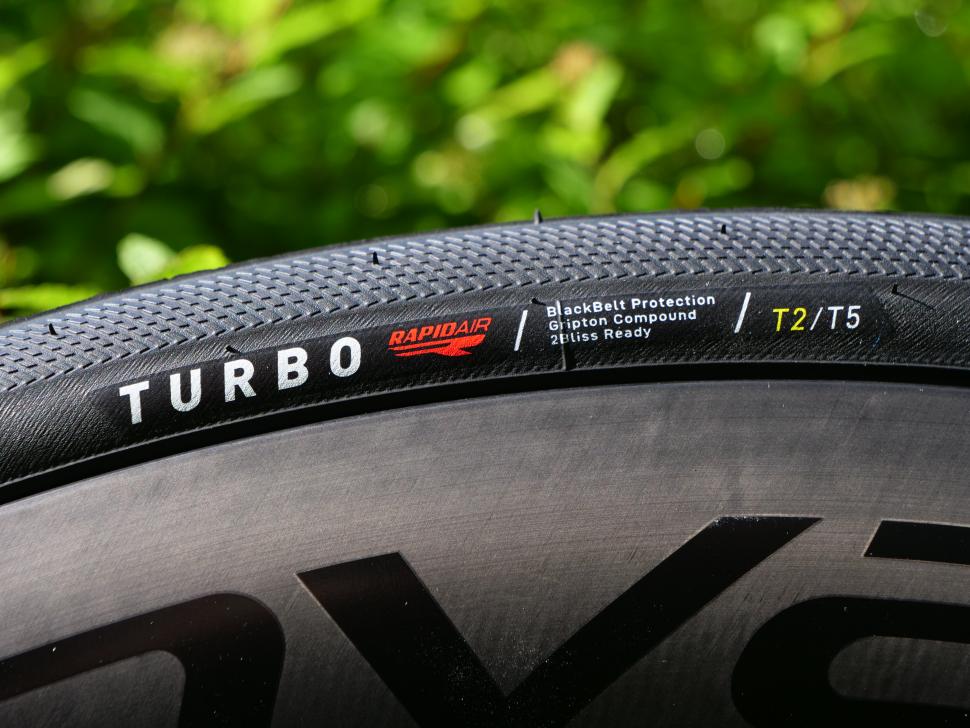
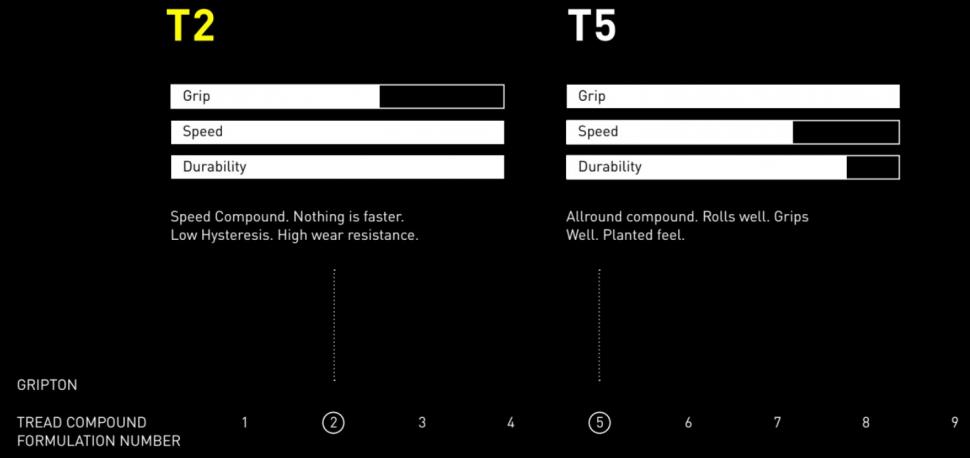
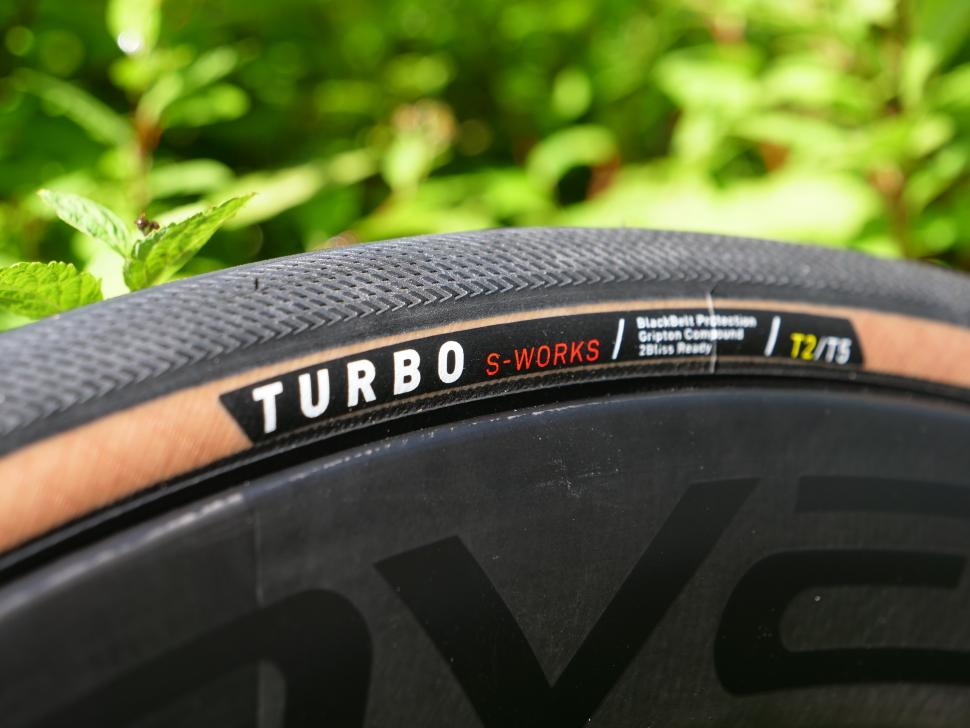
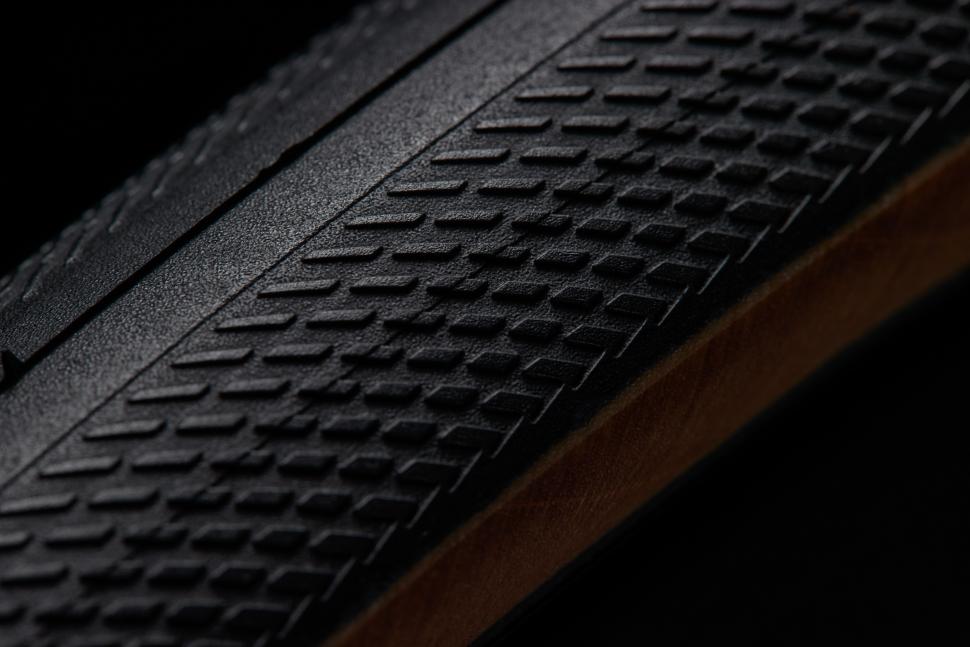
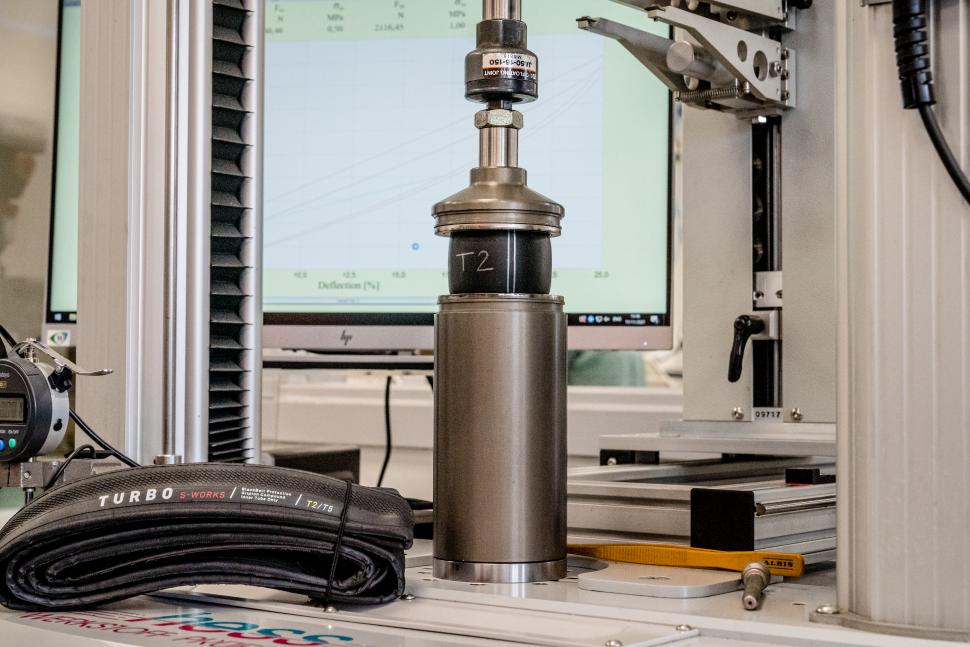




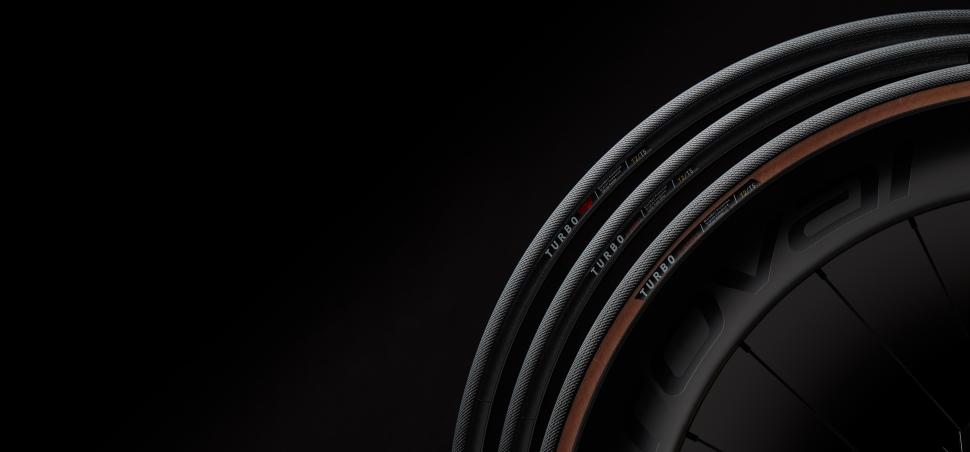
Add new comment
3 comments
Tyre pressures are bs, I run 15-20psi lower on my 26mm tyres for fast road rides
I agree, I run 25mm tubeless on my no.1 bike, I weigh getting on for 90kg and I never run more than 75psi on the rear. The fact that their table doesn't even differentiate between front and rear pressures tells you how little science/ testing they have put into this.
The fact that they only start at 26mm for tubeless also means I won't be buying them cos I only just have clearance for a 25 on the back anyway.
Assuming train weights (but not defined in table) pressures do seen high, 15 to 25 psi above what I'm using for 28/30 mm. High pressures are good for reducing power loss in the tyre during drum testing, maybe this justifies the 'improvements'?